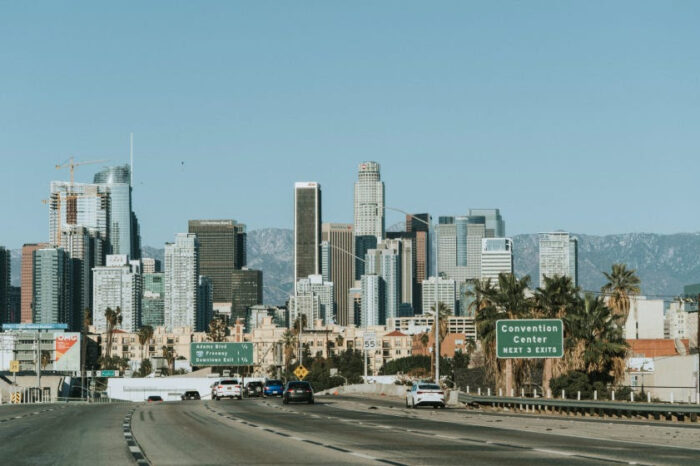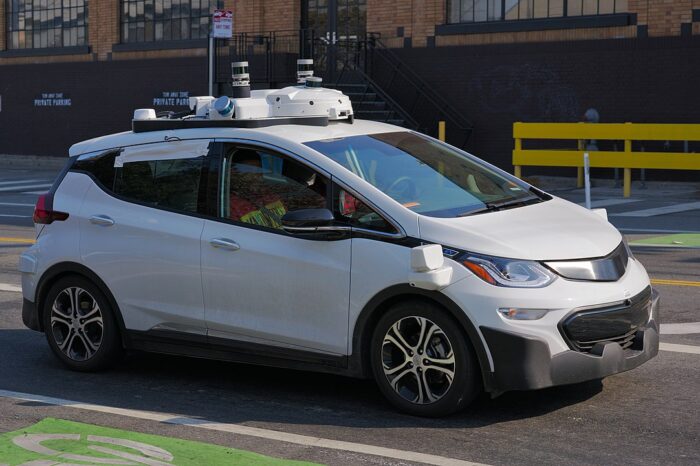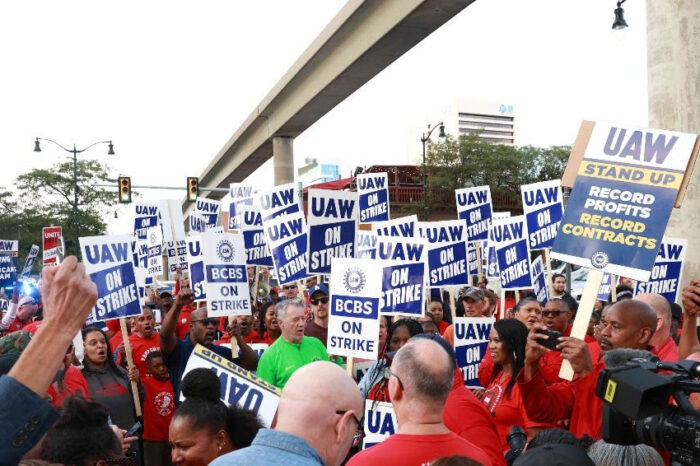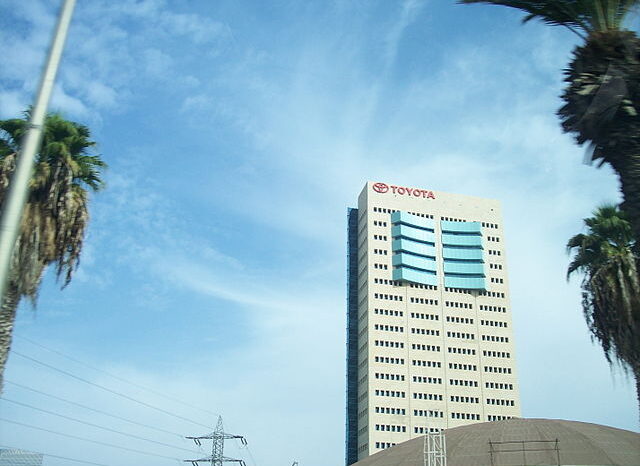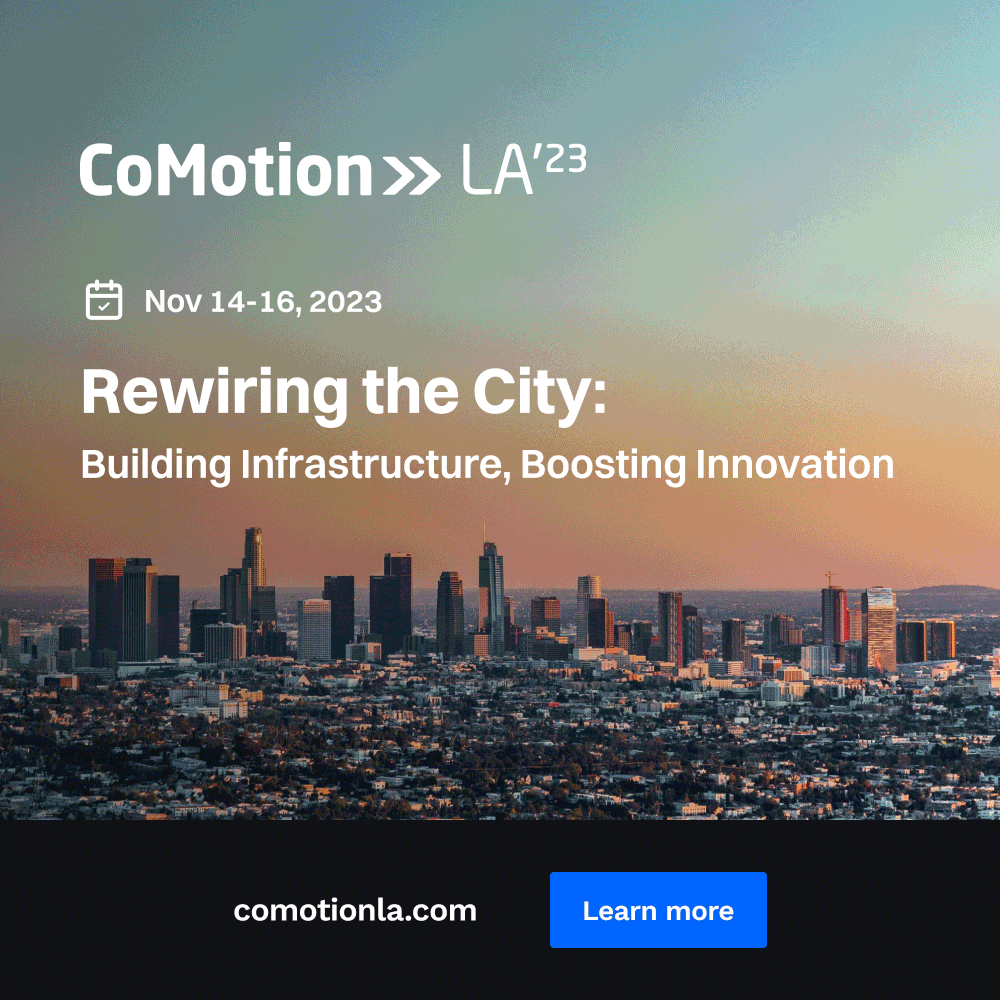Another week and another ominous reminder of climate change, this time from wildfires in Canada that forced millions across North America back into pandemic-style living conditions. Can these types of dystopian experiences increase people’s awareness of climate change and support for doing something about it? Well, if that’s not enough, hopefully good-paying green jobs will do the trick.
Also: GM joins the Tesla charger network, the FAA has a new (interim) leader, California Democrats battle the governor over transit funding, parking economics guru Donald Shoup urges New York City to eliminate free on-street spots, Uber gets a green makeover, and Volvo unveils a pretty cheap EV. And while the AV industry pushes the UK government to ease restrictions on driverless cars, California forges ahead with more driverless permits, most recently for Daimler.
![]()
The smokiest days…ever? The Canadian wildfires raging have caused the worst air quality in recent memory in many of America’s biggest cities. Will the silver lining be an increased awareness of climate change? Maybe.
Good choice for FAA, at least for now: The president appoints Polly Trottenberg, a deputy secretary of transportation, to oversee the Federal Aviation Administration in an interim role. Trottenberg also served for six years as New York transportation commissioner under Mayor Bill De Blasio. The Biden administration has been criticized for its handling of U.S. air travel, notably the high number of delays and cancellations. While Transportation Secretary Pete Buttigieg, the target of much of the criticism, has called on airlines to up their game, airlines have pinned the blame on a shortage of air traffic controllers and other key personnel.
Dems accuse Newsom of transit betrayal: Top Democrats in the California State Assembly say Gov. Gavin Newsom’s proposed $2 billion cut to local transit funding is a betrayal of a deal he made with legislators last year. They say they agreed to protect a high-speed rail project in the Central Valley in exchange for a boost in funding for struggling local transit agencies. Transit agencies say they will be forced to cut service without the promised funding.
GM embraces Tesla chargers: Following the example of rival Ford, GM will integrate Tesla’s charging standard into its EVs, says CEO Mary Barra. This will give its customers access to 12,000 chargers across the U.S. and Canada.
Daimler gets California AV permit: Mercedes Benz can now sell and lease cars in California equipped with an autonomous driving program which promises hands-free, eyes-free driving on certain highways. Drivers will be allowed to largely disengage from the driving process and indulge otherwise dangerous distractions: reading, watching videos etc. But only on highways and only at speeds of up to 40 mph. So this seems somewhat limited…for now.
People are exploring their own cities less: A study of U.S. travel based on cell phone data highlights one largely-overlooked effect of the pandemic: people became much less likely to interact with those outside their demographic group. The analysis by researchers at MIT followed over 1 million users in Dallas, Seattle, Boston and Los Angeles from December 2019 to December 2021. It showed that even as people returned to pre-pandemic levels of mobility in 2021, they were not going to as many different parts of their cities as before –– particularly those with different socioeconomic profiles. Sure would be interesting to see an updated study that shows whether and how behavior changed in 2022 and 2023, now that things truly are “back to normal.”
Uber’s green makeover: The ride-hailing giant announces a number of sustainability pledges and programs, including a commitment to an “emission-free platform” by 2040. Among other things, those who book rides in EVs or hybrids through Uber Green will now be able to track the amount of carbon emissions they are avoiding. I guess that can make us feel a little better when we take an Uber.
AV industry urges UK government action: The UK government has said it’s committed to making the country a global hub for AV research and development, but its regulations are currently keeping investment away, according to industry observers. Driverless cars are not currently allowed to operate on UK roads, but the government has said it will propose regulatory changes in legislation this summer.
The lives saved by EVs: If Americans all adopted EVs now, roughly 90,000 premature deaths would be prevented by 2050, according to a new study by the American Lung Association.
![]()
The parking reform that could transform Manhattan: Donald Shoup, the UCLA economist best known for his groundbreaking 2005 book, The High Cost of Free Parking, urges Manhattan to replace its tens of thousands of free on-street parking spots with demand-based meters that fund neighborhood infrastructure. The status quo leads drivers to circulate, looking for parking spots, increasing congestion and carbon emissions. While Shoup acknowledges the political perils of charging for parking, he says that tying parking revenue to neighborhood amenities (sidewalks, trees, playgrounds) is the key to building support for it.
Getting Red America to go Green: New York Times economics writer Binyamin Appelbaum visits Moses Lake, Wash., a rural community that will soon be home to two major plants linked to the burgeoning EV industry. Will bringing green jobs to red America reduce the cultural divide over environmental policy?
The case for saving SF’s transit: Times columnist Farhad Manjoo urges Gov. Gavin Newsom to back off a proposed $2 billion cut to local transit, underscoring the devastating cuts that could come for transit just in the San Francisco Bay Area. It is short-sighted, argues Majoo, and undermines Newsom’s stated climate objectives.
Enjoy the Week in Review? Get it delivered directly to your inbox by signing up for the CoMotion NEWS newsletter.
